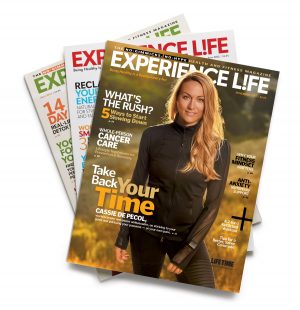This week on The Living Experiment, we’re talking about Judgment — the critical opinions we hold about ourselves and others, and the sometimes scathing assessments we make as a result.
From our natural tendency to disparage those who disagree with us, to the opportunities we miss when we make up our minds too quickly, we explore the territory between learning and judging, between connecting and distancing, between living in the questions and having all the answers.
We suggest some ways of moving from self-righteousness belief toward open-minded inquiry, and we offer you some experiments to help you soften the judger within yourself.
“Judgment” Episode Highlights
- Dallas and Pilar address a listener question about whether all judgment is inherently negative
- The difference between having opinions and being judgmental about other’s opinions
- Pilar shares some insights about the “discerning” and “judging” parts of her own personality, and shares a real-life conflict where judgment played a role
- The importance of keeping in mind your goals for the various relationships you have, and letting those goals be your guide
- The value of asking questions as a tool for better understanding other people’s views and avoiding hurtful assumptions
- Pilar walks through the “Learner Path” and the “Judger Path” as articulated in Dr. Marilee Adams’s “Choice Map” (linked in Resources below)
- The difference between “the facts” vs. the facts as you see them
- The role that assumed meanings and incomplete perceptions play in catalyzing our judgments
- Byron Katie’s tool for transforming judgment and finding things right: the “Judge Your Neighbor” worksheet (linked below)
- The body-mind’s stress response to judging, including tunnel vision, tension, and inflammation
- Noticing how your own judgments impact your connections and your daily experiences, for better or worse
- The value of being able to hear and process different viewpoints without becoming a victim of your own reactionary responses
- Utilizing breathing and mindfulness to mitigate our impulse to judge prematurely
- The practice of empathy and forgiveness — how they can help soften our judgments and improve our mental and physical health

With the understanding that we typically base our judgments on perceived meanings, take a look at a negative emotional response or judgment you’ve held about your own or someone else’s behavior. Reflect on the meaning you ascribed to that action, and the emotions or thoughts that followed from that assumed meaning. Then consider: Is it possible that there could be a different meaning (or no meaning at all) behind the behavior? Could you be wrong about the meaning that you initially gave it? Seeing the previously-judged action or behavior through that lens, could you choose to have a different experience around it, and perhaps envision a more positive resolution?

Healthy-Living Wisdom, Delivered to Your Door
Get your discounted print subscription to Experience Life magazine for just $19.95 — and sign up for their free e-newsletters, too!

Share the Love!
Have you told your friends and family about The Living Experiment? If you dig the podcast, please share it! Every recommendation from you means a lot!
We’d also love to have you connect with us on Facebook. Tell us about your experiments, and share your thoughts, stories and reflections there.
Resources
- How to Stop Being Judgy, Lines of Inquiry and Loving What Is via Experience Life Magazine
- The Choice Map, created by Marilee Adams, PhD, via the Inquiry Institute
- Books by Marilee Adams, PhD: The Art of the Question and Change Your Questions, Change Your Life
- Byron Katie’s Judge-Your-Neighbor Worksheet
- Resources from The Living Experiment episode “Impulse” (clearing the mind when feeling judged or judgmental)
- Judgment Detox by Gabrielle Bernstein
- A link to the Thich Nhat Hanh print “Are You Sure”? (which Dallas keeps on his wall)
PLUS …
- Sign up for The Living Experiment newsletter so you can stay up to date with us, get free gifts, and receive notifications when new episodes are released.
- Subscribe to The Living Experiment on Apple Podcasts to have fresh episodes delivered to your podcast feed each week.